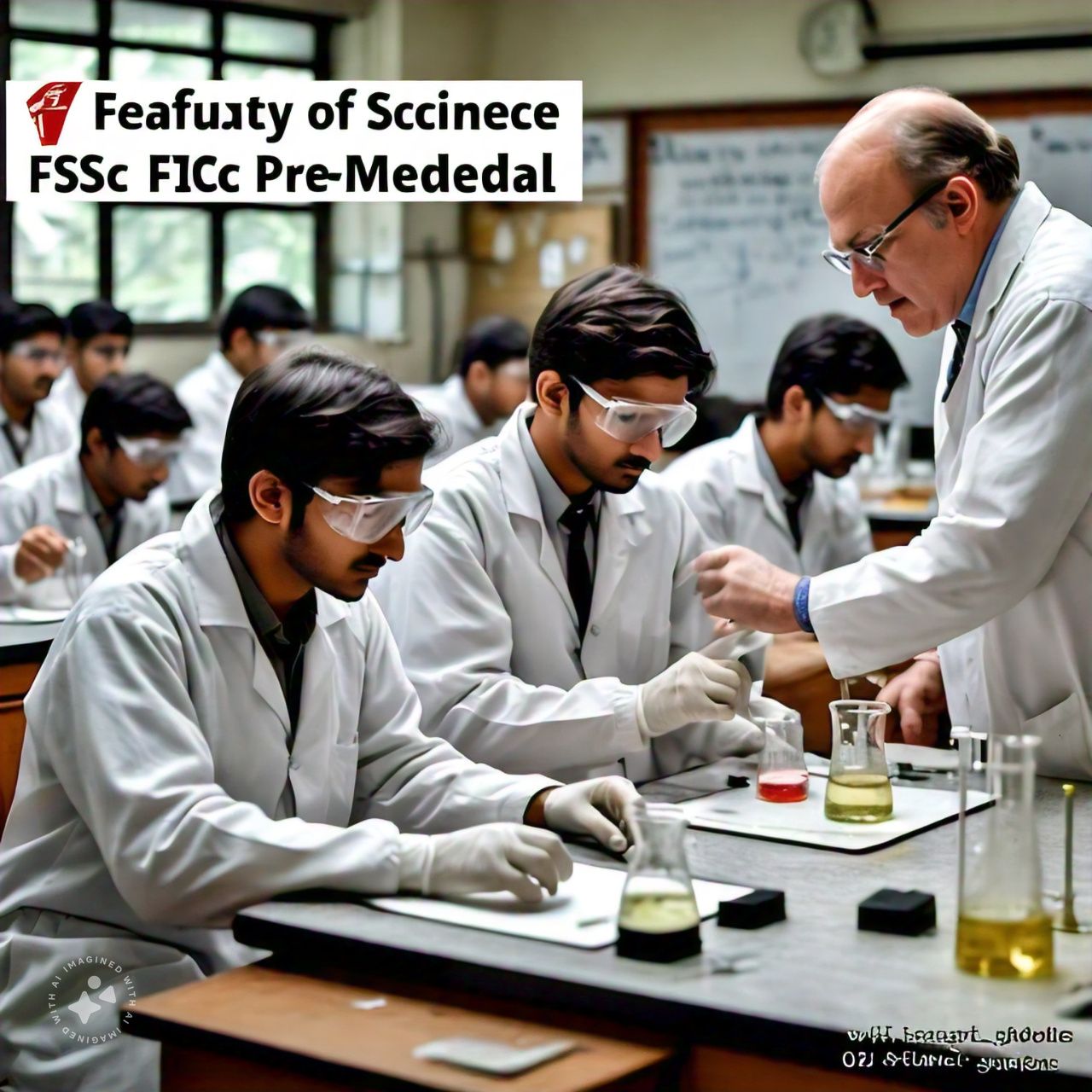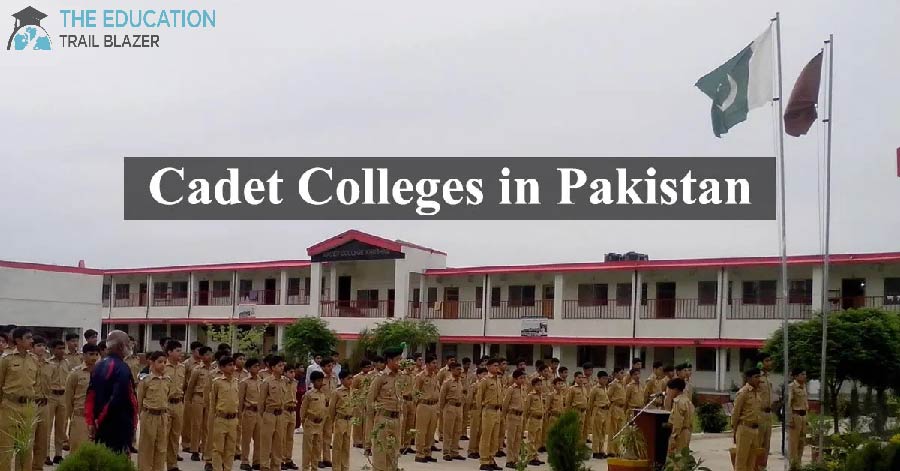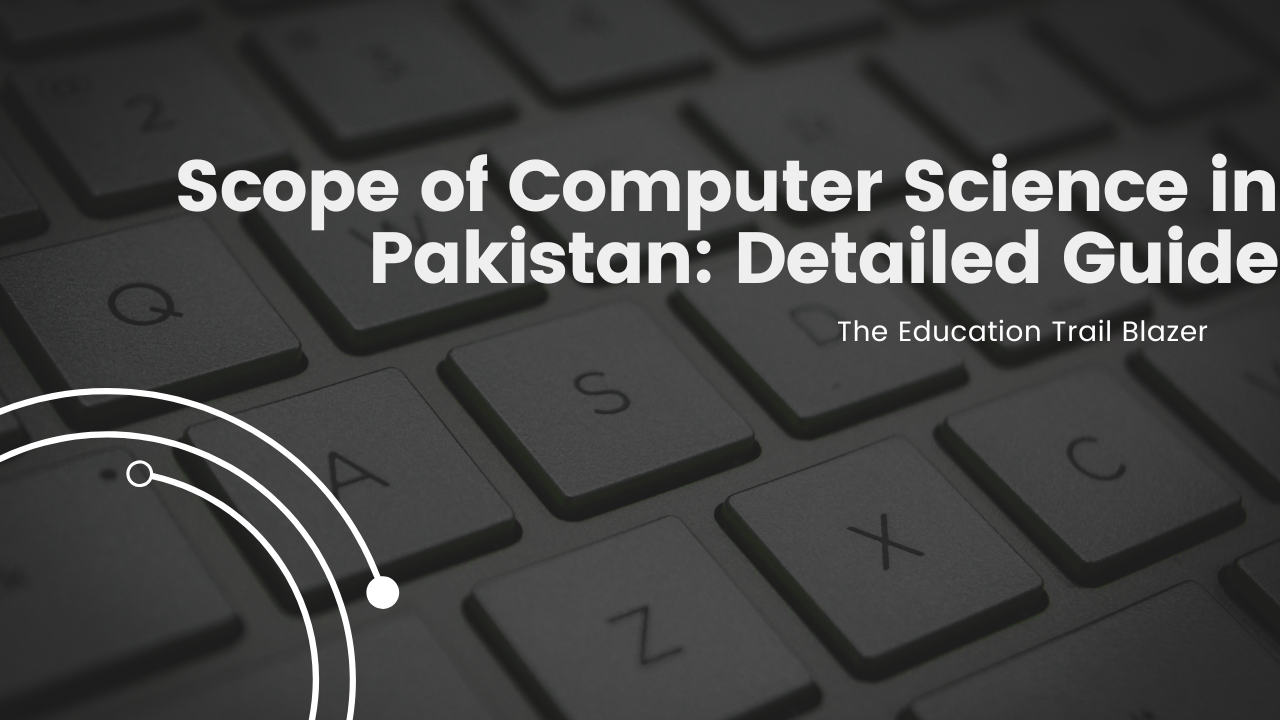The Higher Secondary School Certificate in Pakistan is called FSc, or Faculty of Science. intended to educate and instruct learners in the fundamentals of biology, chemistry, physics, and mathematics.
The two-year Faculty of Science certificate is pursued immediately after completing matriculation. It is seen as equivalent to the General Certificate of Education (A-Level), which is administered by Cambridge International Examinations.
In Pakistan, FSc is administered by different educational boards, each of which is in charge of managing the curriculum and exams in their particular areas. In Pakistan, the top five major boards are:
- Federal Board of Intermediate and Secondary Education (FBISE): The Federal Government oversees it and holds exams throughout Pakistan.
- Punjab Education Board (BISE Punjab); Examined by the Punjab province and it is the biggest provincial board in Pakistan.
- The Board of Intermediate and Secondary Education (BISE Karachi) serves students in Pakistan’s largest metropolis, Karachi.
- The Khyber Pakhtunkhwa Board of Intermediate and Secondary Education, or BISE KP, oversees the province of Khyber Pakhtunkhwa’s educational standards and assessments.
- Sindh Education Boards (BISE Sindh) – Sindh is home to several educational boards.
There are many FSc subject based domain options, but most learners chose either FSc with Biology (pre medical) or FSc with Mathematics (pre engineering)
The main difference between FSc pre engineering and pre medical is a single subject. Students who wish to pursue a profession in medicine must choose FSc pre medical subject with Biology and the Students who want to work in engineering or information technology must choose FSc pre engineering with Mathematics.
Importance of FSc Pre Medical Subject
The FSc pre medical subject builds a strong foundation of students who wants to persue a career in medical and healthcare. Students and learners who successfully excel in FSC pre medical subjects can get jobs in medicine and other health/biology related disciplines.
FSc pre medical is a two-year program divided into two parts or years of education: the first year or 11th grade (Part 1) and second year or 12th Grade (Part 2)
After completing FSc, students are well-prepared to enter a reputable college or university that offers medical and health related qualifications. This is because FSc Pre Medical Subjects build a solid foundation for students in core courses like Biology, Chemistry, and Physics. It is one of the most direct paths is to obtain a degree in medicine or dentistry from a reputable institution.
That’s not all, FSc pre-medical graduates can also pursue rewarding careers in the pharmaceutical and biotechnology industries. They can make significant contributions to drug research, clinical trials, and regulatory affairs, all of which help to advance medical science. Pre-med students can also pursue the growing subject of psychology, which offers an opportunity to study the human mind and promote mental health and wellbeing in clinical, educational and corporate settings
Core Pre Medical Subjects
- Biology: Fundamental subject for pre-med students and learners as it provides core knowledge of living organisms, human anatomy, physiology, and genetics. This insight is essential for pursuing careers in medicine and dentistry related fields.
- Chemistry: essential for understanding the chemical processes within the human body and the interactions of diverse substances. It covers organic, inorganic, and physical chemistry, giving students the skills they need to pursue careers in pharmacology and biochemistry.
- Physics: Physics helps pre-med college students understand the concepts of physics, electricity, and magnetism, which are necessary for understanding how the human body functions. Fluid dynamics and biomechanics are particularly useful concepts in domains such as cardiology and orthopaedics.
Additional Pre Medical Subjects
- English: Almost all the globally credited medical colleges and universities teach in English, pre-med students must be fluent in the language.
- Urdu: As the national language, Urdu proficiency enables students to efficiently communicate within the local healthcare system.
- Islamic Studies: Promote ethical behaviour and decision-making within a moral framework.
- Pakistan Studies: Helps students understand their country’s history, culture, and sociopolitical background which is important for medical personnel to comprehend their patients and client’s backgrounds, and handle healthcare issues.
Examination and Grading System
FSc pre-medical exams include both theoretical and practical sections for fundamental subjects including biology, chemistry, and physics. Each subject usually contains:
- Theory Papers: Written tests that assess your understanding and comprehension of the topic area.
- Practical exams: Hands-on tests that assess students’ laboratory abilities and practical understanding.
Duration and Frequency: Theory exams often last 2–3 hours, according to the subject and regulatory board. Board Examinations are typically held at the end of the academic year.
Division and Scores: The total scores for the FSc pre-medical curriculum are 1100, divided equally between Parts 1 and 2, each of which contributes 550 marks.
Part 1 (First Year or 11th Grade): Covers the first half of the syllabus, with exams being taken at the end of the first academic year. Mentioned below are the Marks distribution details for 1st year FSc pre medical subjects.
- English and Urdu:
- Objective: 20
- Subjective: 80
- Total: 100
- Islamiat
- Objective: 10
- Subjective: 40
- Total: 50
- Biology, Chemistry and Physics:
- Objective: 17
- Subjective: 68
- Practical: 15
- Total: 100
Part 2 (Second Year or 12th Grade): Covers the remainder of the syllabus, with exams taken at the end of the second academic year. Mentioned below are the Marks distribution details for the 2nd year FSc pre medical subjects.
- English and Urdu:
- Objective: 20
- Subjective: 80
- Total: 100
- Pakistan Studies
- Objective: 10
- Subjective: 40
- Total: 50
- Biology, Chemistry and Physics:
- Objective: 17
- Subjective: 68
- Practical: 15
- Total: 100
Aggregate Calculation: The overall score for FSc Pre-medical is computed by combining marks from Part 1 and Part 2 exams. This cumulative score impacts the final grade and eligibility for colleges and universities.
Grading Scale:
- A+ (Excellent): 80% or more
- A (Very Good): 70%-79%
- B (Good): 60%-69%
- C (Satisfactory): 50%-59%
- D (Pass): 40%–49%
- F (Fail): <40%
Career Pathways after FSc Pre-Medical
Medical and dentistry Colleges:
After completing the FSc Pre-Medical, many students continue their study in medical or dentistry colleges. This approach often includes:
- Bachelor of Medicine and Bachelor of Surgery (MBBS): is a five-year undergraduate degree that focuses on medical science and clinical practice.
- Bachelor of Dental Surgery: is a four-year undergraduate program focused on dental sciences and oral health.
Allied Health Sciences:
Students who are interested in healthcare but do not wish to pursue MBBS or BDS might enroll in allied health sciences programs. This includes:
- Doctor of Pharmacy (Pharm.D): five-year degree that focuses on pharmaceutical sciences and clinical pharmacy.
- Doctor of Physical Therapy (DPT): five-year curriculum that trains students in physical therapy and rehabilitation.
- Bachelor of Medical Laboratory Technology: four-year degree that prepares students for careers in diagnostic laboratories.
- Bachelor’s in nursing (BSN): four-year degree that prepares students for careers in nursing and patient care.
Alternative Career Options.
FSc pre-medical graduates can pursue a variety of other professional routes, including:
- Biotechnology: the research and development of medical technologies and medicines.
- Biomedical engineering: Design and development of medical equipment and devices.
- Nutrition and Dietetics: Proposing dietary recommendations and nutritional support in hospital settings.
- Psychology is the study of human behaviour, including counselling and therapy, educational counselling, and organizational psychology.
- Veterinary Sciences: As a veterinarian, you will focus on animal health and treatment.
- Public health: Collaborating with community health organizations, developing policies, and preventing disease.
Conclusion
To summarize, FSc pre-med subjects are critical to pursue a career in medicine or a healthcare-related job. This academic program is crucial for Pakistani healthcare professionals.
The FSc pre-medical disciplines give students and learners a firm foundation in biology, chemistry, and physics, preparing them for admissions in medical and dentistry colleges and universities. Furthermore, it can also help you get in allied health sciences fields and alternative healthcare occupations.
FSc pre-medical subjects provide a strong foundation in essential areas, strengthen critical thinking skills, and provide students with the academic skills and understanding required for entrance to healthcare institutions. It is the first step towards meaningful employment that benefits healthcare growth and societal welfare.
How difficult it is to excel in FSc pre medical subjects?
Is English proficiency important for FSc Pre Medical?
Can I take FSc pre-medical subjects after matriculating/SSC in Computer Science?
What are the advantages of taking FSc Pre Medical?
How can students improve their FSc pre-medical subject marks?
– Having a regular study routine
– Comprehending fundamental principles, and
– Practicing core concepts through regular testing. 1
What are the employment opportunities available after completing the FSc Pre-Medical?
Which Regulatory Board Is the best for FSc Pre Medical Subjects?
Which Regulatory Board Is the most difficult for FSc Pre Medical Subjects?
What are the 1st year pre-medical subjects in Sindh Board?
Biology
Chemistry
Physics
English
Urdu
Islamiat (for Muslim students) or Ethics (for non-Muslim students)




